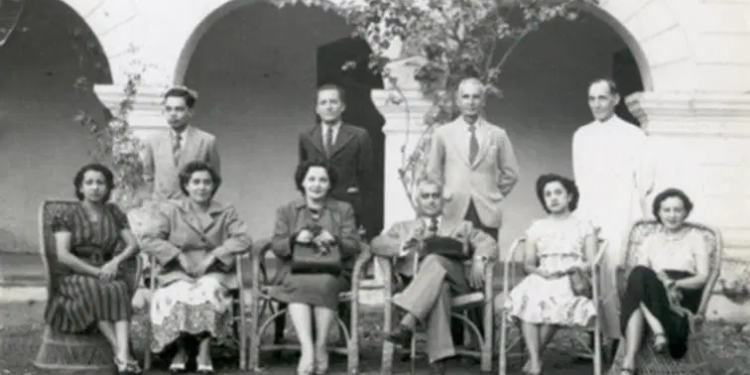The Constitution of India has often been described as a social document. Unlike the Constitutions of other countries which deal predominantly with the positive or negative rights guaranteed to its citizens and the functions and powers of the State, the scope of Constitution of India is much wider. One such aspect of the Constitution of India is reservation to the Anglo-Indian community. Article 366 (2) defines Anglo-Indian and states, “an Anglo Indian means a person whose father or any of whose other male progenitors in the male line is or was of European descent but who is domiciled within the territory of India and is or was born within such territory of parents habitually resident therein and not established there for temporary purposes only.”
While Article 331, empowers the President to nominate up to two Anglo Indian members in the lower house of the Parliament, Article 333 empowers the Governor of a State to nominate one Anglo-Indian member to the concerned State Assembly. Though initially the provision for the nomination of Anglo-Indian members was envisaged for 10 years, subsequent amendments have extended the period for which such provisions are applicable.
The 95th amendment extended this period up to January 26, 2020. Given the temporary character of the provisions regarding the nomination of Anglo-Indian members to the legislature, it is time to revisit Articles 331 and 333.
Concerning the temporary character of the provisions for the nomination of Anglo-Indian members, Pandit Thakur Das Bhargava had suggested an amendment about the provisions concerning reservation during the Constituent Assembly debates. He had submitted that though the Anglo-Indians were small in number, they were the most advanced community and in place or reservation, they were given the power of nomination. He made it clear that there was no reason why the provisions regarding the nomination of Anglo-Indian members should have been accepted for a period longer than 10 years. However, the last seven decades haven’t seen much debate and discussion about how much longer these provisions should be retained or if they should be retained at all.
The temporary character of the provision is one aspect of the issue. The temporary character only creates the flexibility of not remaining bound by the provision when it no longer seems essential or its ends are either served or the provision starts looking redundant as far as achieving the avowed objective is concerned. In this context, it is imperative to peruse Ananthasayanam Ayyangar’s opinion about the Anglo-Indians. He stated, “they (Anglo-Indians) were once part rulers of this country and therefore they should be shown some partiality for some time to come.” Therefore, the provisions regarding the nomination of such members were supposed to deal with the insecurities harboured by the community after the British rule exited. However, 72 years down the line, this circumstance has gone a sea change. British rule has become a thing of the past and it can be safely said that the Anglo-Indian community no longer holds any reasonable concern about the end of British rule. As such, the object with which these provisions were enacted no longer exists. It must be noted that Article 334 (b) which provided special treatment to the Anglo Indian community in certain other sectors has also been allowed to lapse. The rationale behind extending it must also have been the fact that the Anglo-Indian community no longer harboured any insecurities regarding the end of British rule. When such special treatment has been done away in other sectors, there is no cogent reason explaining its retention in the case of the legislature.
Moreover, if the other object of the nomination provisions was to plug the migration of the community from India, then it can be safely said that these provisions haven’t managed that. According to The Hindu, the migration arose from the issue of identity. The Anglo-Indian community perceived it to be closer to the British than to the Indians. Therefore, the nomination provisions have failed to curb the migration of the community and in that sense, the object of the provisions stands defeated rendering it redundant.
Finally, the undemocratic use of the provisions also makes a strong case for doing away with the nomination of Anglo-Indian members. Taking the state of Jharkhand for example. In 2005, Shibu Soren government had nominated an Anglo-Indian member by invoking Article 333 days before he had to prove his majority in the assembly. BJP leader, Arjun Minds filed a petition before the apex court and succeeded. The Supreme Court prohibited the Governor from giving his consent to the nomination before the floor test was conducted. However, this episode did expose how the provision gave an unfair advantage to a ruling government especially when it has to prove its majority in close and nail-biting floor tests.
Therefore, one expects that when this long-standing question of discontinuing the nomination of Anglo-Indian members to the lower house of the Parliament and state legislative assemblies comes up again, the Modi government will take a bold stand and do away with these provisions which seem redundant in today’s time.

























